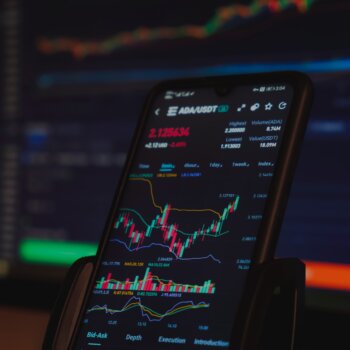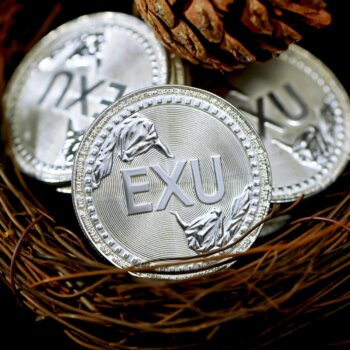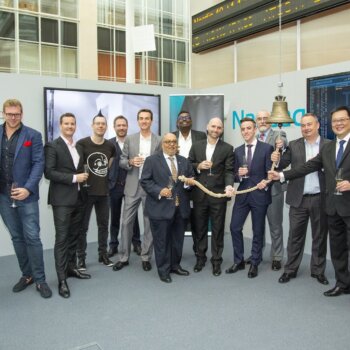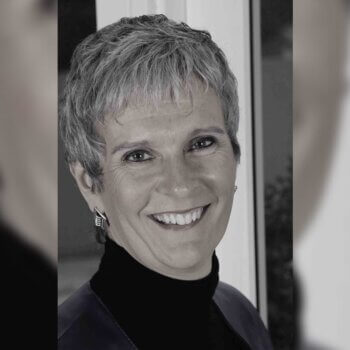Helping the Next Generation of Great Companies Move Forward
In light of a new partnership between the World Business Angel Forum and AsianEntrepreneur we are kicking off with an interview of founder and chairman Baybars Altuntas. A very successful entrepreneur, published author and celebrity in his home country of Turkey, Baybars is now committed helping the next generation of entrepreneurs connect with finance and scale around the globe.
In light of the WBAF partnership with AsianEntrepreneur, what is WBAF hoping to achieve in Asia?In the past, inventions were important for the economic development of societies. In the 21st century, however, it is not invention but innovation that counts. In those earlier times, entrepreneurial skills were not needed to get an invention to the market because it was a seller’s economy, where customers were ready to buy anything new. Times have changed, and the rules of the game have changed. Today’s inventors need more than just a clever idea. They need a complex set of skills to move their innovative idea into the market and to ensure it succeeds.
“it is not invention but innovation that counts”
Ours is the age of the entrepreneur. (the buzz word of our century). The current, highlycompetitive economic environment means that scaling up businesses demands special skills of entrepreneurs, who are obliged to secure financing as quickly as possible. Yet finance alone is not sufficient enough to create global success stories. The entrepreneur needs not simply finance, they need the best finance. WBAF’s partnership with AsianEntrepreneur aims to develop a set of skills for of Asian Entrepreneurs to access the best finance.
What presence do you currently have in Asia?
We have appointed Callum Laing as the WBAF High Commissioner in Singapore. We see Singapore as the innovation hub of Asia. We therefore have given special importance to Singapore. Additionally, WBAF has appointed High Commissioners for Hong Kong, Kazakhstan and Bangladesh.
What is the appeal of Asia and what do you think the future holds for investors in Asia?
Singapore, which was recently ranked as the 10th best startup ecosystem in the world by San Francisco-based research agency Compass, is employing resources – money and manpower –to further foster its booming startup scene.
Hong Kong has also seen a boost with this year’s government announcement of an Innovation and Technology Venture Fund worth a HK$2 billion ($256.7M USD). While still less than the Singaporean government’s investment in total, Hong Kong’s location and proximity to manufacturing hubs like Shenzhen mean that hardware startups are flocking from around the region (and the world) to set up offices on the island.
Both countries’ private sectors are also investing in the startups ecosystem with an increasing number of accelerators and incubators springing up. Banks, car manufacturers and even healthcare insurance companies have set up their own accelerator programs to tap into the talent in their particular industry.
Malaysia was the only country to host a Global Entrepreneurship Summit (GES) in Asia. It was an initiative of former US President Barack Obama.
On the other hand, small countries like Brunei have founded the Brunei Economic Development Board and one of the Board’s agenda items is to empower the entrepreneurial ecosystem of the country.
After checking each country’s entrepreneurial ecosystem in Asia, I see that challenges in Asia are a bit different to Europe and USA. USA has a good pre-start- up+ start-up +scale-
up +exit system. Europe is not good at scale-up and exit. Europe’s main problem is scale-up. Asia doesn’t have a scale-up problem but an exit problem. Asia has to focus on developing its own exit market within the continent. My personal summary of this is as follows:
- USA: pre-start- up+ start-up + scale-up+exit
- Asia: pre-start- up + start-up + scale-up
- Europe: pre-start- up + start-up
- Africa: pre-start- up
What is WBAF doing in the rest of the world?
As I said earlier, ‘’The entrepreneur needs not simply finance, they need the best finance.’’ So, what is the ‘best finance?’
The best finance is a miracle that happens when one is able to combine money, know-how, mentorship and networking. This is perhaps better termed smart finance.
Consider the various sources of finance available to entrepreneurs: Beyond basic bootstrapping, there are corporate ventures, angel investors, crowd funding platforms, accelerators, VC s, banks, public grants, co-investment funds, business plan competitions, technology transfer offices, family offices, private equity investors and stock exchanges. With the notable exception of angel investors, all of these sources provide only money, nothing more.
The only true source of smart finance are angel investors. Angel investors, are able to influence a country’s economic development by providing more than just money to entrepreneurs and SMEs. They contribute their own know-how, provide mentorship, and share their own networks in contributing to the businesses they invest in. They are thus the main drivers of innovation and the natural leaders of the world’s early-stage investment markets.
In 2015, more than 300,000 angel investors invested more than $25 billion in startups in the US, and more than 310,000 angel investors invested more than 6 billion Euros in Europe. The estimated total global market size of angel investment is over $50 billion every year. Angel investors support entrepreneurs in starting up, and they support SMEs as they scale up their businesses, creating hundreds of thousands of new jobs worldwide every year.
It is rewarding to see that governments around the world have understood the importance of angel investment for boosting their economies. During the Presidential Summit on Entrepreneurship in 2010, President Obama’s response to concerns I expressed about making available public grants for entrepreneurs was promising. In a special meeting with me, he agreed with and supported my position on the importance of angel investors in terms of converting public money to ‘smart money’, that is, cash that is invested by parties who are experienced, well-informed, and well connected.
Many governments, particularly in Europe, offer generous tax incentives for angel investors. The UK and Turkey have already passed angel investment legislation to support such a system. A number of Middle Eastern countries, particularly in the GCC, have discovered the angel investment system and are keen to pursue it because, among other key reasons, it is 100% compatible with Islamic investment principles. In fact, the Islamic Development Bank included angel investment on the list of recommendations proposed for consideration at its annual conference in Jakarta, in May 2016.
The World Business Angels Investment Forum invites all governments and policymakers to take advantage of the know-how, mentorship, and networking of qualified angel investors and to convert public money to smart money by establishing close collaborations between public institutions and private resources such as business angel networks, corporate ventures and VCs.
As a global organisation, the World Business Angels Investment Forum is bringing together key players of the equity markets to discuss the benefits and challenges of achieving successful growth for businesses and to explore additional possibilities for empowering the world economy.
In the wake of the global economic crisis, it was far from easy to reach out for any kind of finance, smart or otherwise. The World Business Angels Investment Forum focuses on developing innovative financial instruments for entrepreneurs and SMEs as a part of its global agenda.
To focus on the ‘smart’ factor in innovation in the context of entrepreneurial ecosystems, the World Business Angels Investment Forum directs its attention to developing smart investors, smart finance, smart exits, and smart entrepreneurs, startups and SMEs.
What is your background and why is this so important to you?
I am a former Senior Advisor of the Elite Programme of the London Stock Exchange Group (LSEG), star of the Turkish version of the television show Dragons’ Den, Chairman of the World Business Angels Investment Forum (WBAF), Vice President of the European Trade Association for Business Angels, Seed Funds, and Early Stage Market Players (EBAN), President of the Business Angels Association of Turkey (TBAA), the World Entrepreneurship Forum Ambassador to Turkey and the Balkan countries, and President of Deulcom International.
I am the recipient of the European Trade Association of Business Angels (EBAN) award for the Best Individual in Europe Globally, Engaging with the Global Entrepreneurial Ecosystem in 2014 (Ireland), 2015 (Netherlands), 2016 (Portugal) and 2017 (Spain). I am the only entrepreneur to be granted a personal audience with former President Obama at the Presidential Summit on Entrepreneurship in Washington, DC. I am the developer of the world-renowned entrepreneurship theory, the Altuntas Start-up Compass Theory, researched by Sheffield University and used in numerous MBA programmes. I am an advisory board member of the South East Europe Research Council in Greece and appointed as JCI Ambassador, following Ban Ki-moon, former Secretary General of the United Nations. I am regularly profiled by international media such as CNN International and Bloomberg.
Furthermore, I am a co-author of Planet Entrepreneur: The World Entrepreneurship Forums Guide to Business Success Around the World, published by Wiley (2013) and an author of Off the Bus, Into a Supercar! How I Became a Top TV Star and Celebrated Investor, published by Balboa Press (2014) and translated into Chinese, Croatian, Albanian, and Macedonian.
At the beginning of my entrepreneurial journey, the only criteria for success was the amount of downloads to my bank account. After you make your wealth, know-how and network; the criteria of success changes, in my case, from downloading to uploading the world! There are many ways of giving-back to the world. You can donate to the government, to the church, to the mosque. Or you can build a hospital and present it to the people for free use. My way of uploading the world is to donate my time and energy to ease access to finance for every entrepreneur in the world. So, WBAF activities are very important for me.
For readers of AsianEntrepreneur who are entrepreneurs seeking funding or would-be entrepreneurs wanting to take the leap, what advice do you have for them?
First of all, it’s important that entrepreneurs starting out are building a business that solves an existing problem and/or fills an existing gap. I say this because as simple as it may sound, an increasing number of young startups I’ve met don’t seem to consider whether there is a real need for their ideas. These are the ones who create a copy of something hoping to achieve the success that the creator of original idea did. That never works except in the very few cases where it is better than the original and/or adjusted better to a regional audience.
But in the digital age, I remind would-be entrepreneurs that there are no borders any more. So whether you find yourself in front of five sharks and a TV audience of millions, or with five minutes and an angel investor audience of one, a big part of their decision is going to be based on the quality of your presentation, and the people involved.
- Prepare yourself, not just your idea. Angel investors invest first in the entrepreneur not in the business plan. It’s important that the investor and entrepreneur get along. They will want to see that you are fast, thoughtful, and efficient, , and can sustain the project through its conception and growth.
- Capture the essentials. Angel investors care more about the presentation than the business plan. Can you, in less than five minutes, explain the project, the return on investment and the growth strategy?
- Have a plan from day one. Angels are very interested in your exit strategy. Many investors tire after about seven years with a company and look around for new opportunities. So what is your exit strategy? Are you going to sell all your shares to a new entrepreneur? Go public with the company? Sell to venture capitalists? Franchise?
- Do your investor research. You should find out as much as you can about your angel investor. Who has he or she invested in before? Have they been successful? How well do they know your industry? How much time can they devote to you and your idea?
- Take care of due diligence upfront. It takes most investors 3 months to do due diligence on your idea. Make sure that it is not a waste of their time.
- Negotiate a term sheet offer. Lack of experience can make this a very painful part of the whole project. You can go to the website of the WBAF (www.wbaforum.org) to learn more about it.
- Learn the vocabulary—it’s all on the Internet!
I suggest preparing four different presentations for the potential investor:
- Business plan of no more than 50 pages
- Business plan condensed into PowerPoint presentation of no more than 20 slides
- This Powerpoint also condensed down to a 2-page brief
- A 5 minute elevator pitch
In Planet Entrepreneur published by the Wiley in New York, I gave a list of 8 things that would turn OFF your investor, and pointed out that only 25% of propositions make it past the first phase. So due diligence is key.
I would like to conclude this interview however, by saying, “It doesn’t matter if you are from the Americas, Europe, Asia, or Africa; the world is waiting for your good ideas.”
—
This article is part of the World Business Angel Forum media partnership with AsianEntrepreneur.org
If you would like more information about WBAF, please contact Callum Laing WBAF High Commissioner for Singapore. [email protected]































